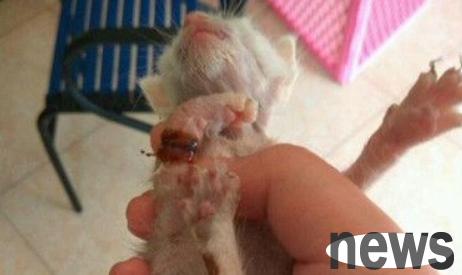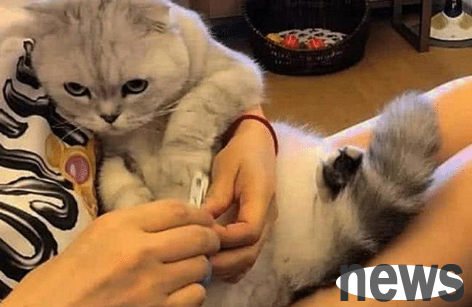How to train your cat to become a social expert? Cultivate the social behavior of kittens!
It is the wish of many cat owners to have a beautiful and friendly cat. When friends come to visit, if your cat comes out generously to welcome and send off and play with the guests, it will definitely add a lot of fun. On the contrary, if it hides under the bed or on the top of the cabinet and refuses to see people, or even trembles all over, the guests are still frightened after leaving, which is a pity for it and you.
How to cultivate your cat to become a social expert? Cultivate the social behavior of kittens!

The importance of early social interactions
Because the living environment of a cat is relatively closed and has less contact with the outside world, friends who raise cats must arrange enough and pleasant social opportunities for the cat in their childhood, so that it can live in harmony with humans or other animals with a healthy mindset.
The cat's 2-7-week age is a sensitive period for social interaction. Letting kittens learn to socialize early can prevent behavioral problems in adulthood, and it is much easier to establish good habits than to correct bad habits in the future.
Adapting to family life in childhood
From two weeks of age, cats should receive caress from their owners, several times a day, several minutes at a time, and gradually increase the time and density of caresses. While caring, talk to the cat gently. If conditions permit, relatives and friends should be asked to touch the cat together, or the owner should wear a hat, sunglasses and other disguise to allow the cat to adapt to different images.
During this period, the cat will be weaned and start eating solid food. They will gradually begin to explore things around them, increase their time to play, increasingly show strong curiosity, and their movements become more and more coordinated. The owner should seize this opportunity to give it a full life experience and reduce the fear of strange things.
Gradually introduce daily necessities such as vacuum cleaners, washing machines, doorbells, etc. to cats to help them adapt to the home environment. The barking of dogs and car horns should also be felt frequently.
Don't be too proactive
Cats are independent animals, don't be too proactive when making friends with cats. If your cat missed the best social period, or had an unpleasant experience, leaving a psychological shadow, you should only approach the cat when it is very relaxed. You can talk to it softly while it is eating to let the cat understand your kindness. The above caress method is also effective, but don't rush to touch it, don't make noises, or move too hard to scare the cat. A patient and gentle attitude will definitely win the favor and trust of the cat.
Teaching according to your aptitude
Every cat has different personalities, hobbies and living habits. Some cats are lively and active and like to explore at home; some cats are well-behaved lovers and like to act coquettishly in their owners' arms; some cats are more willing to be alone... Different cats are fascinated by toys. Once you understand the cat's respective characteristics, you can arrange your daily activities in a targeted manner, and the process of understanding the cat is also very interesting for the owner.
Punishment is useless
Cats are arrogant by nature, and punishment is very effective in raising good cats. After-the-fact punishment is even more harmful and useless, because cats will not associate previous wrong behavior with subsequent punishment, but will instead be confused by the owner's attitude. Beating and scolding at will will destroy the cat's feelings and trust in the owner. Therefore, when a cat does something wrong, just by saying "No!" in a timely manner, it can understand the owner's likes and dislikes.
Patient, attentive and scientific way will surely shape a cute cat that makes you proud. A calm and confident personality can also allow cats to experience more joys of life, thereby better living in harmony with humans.





